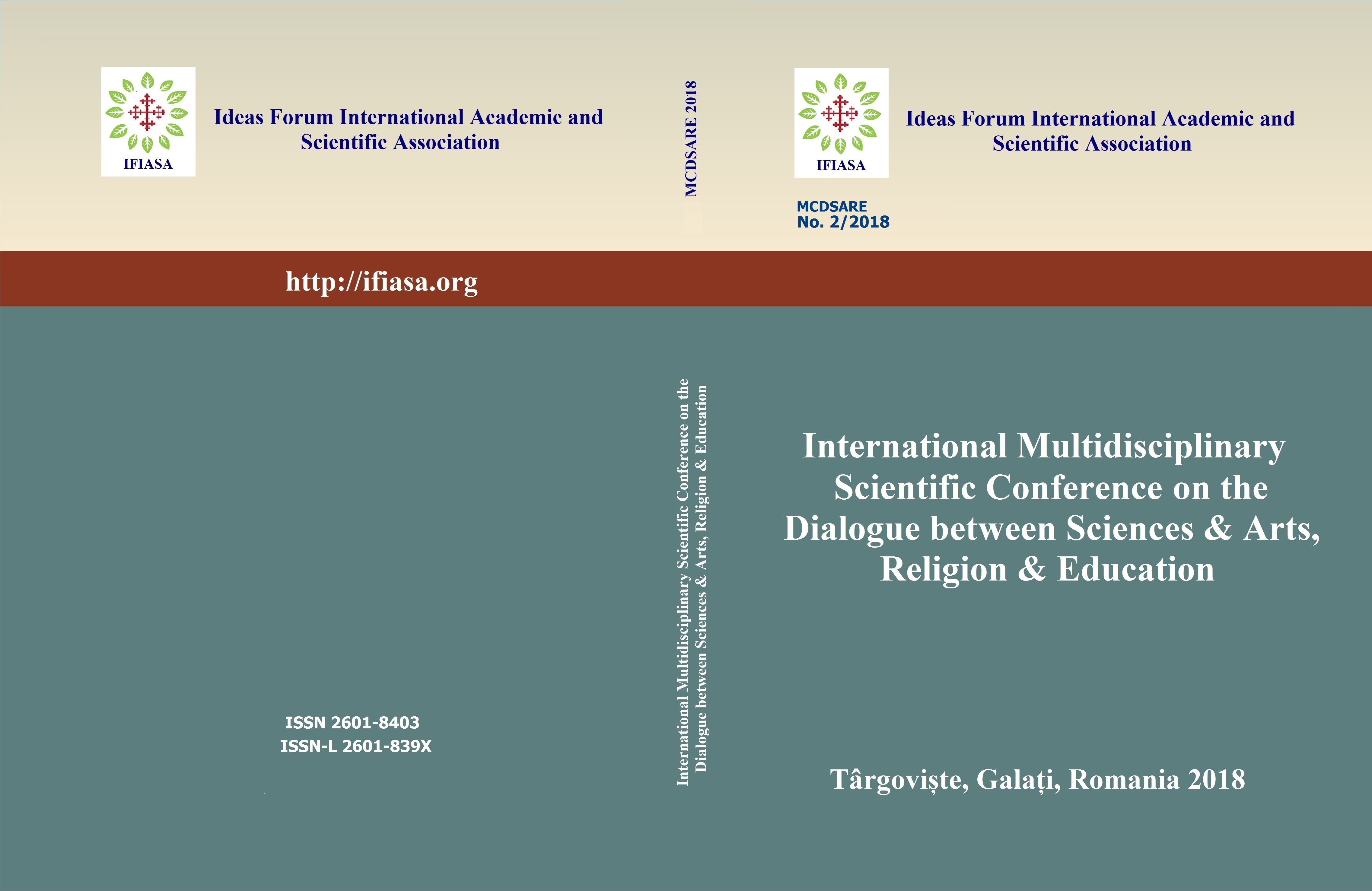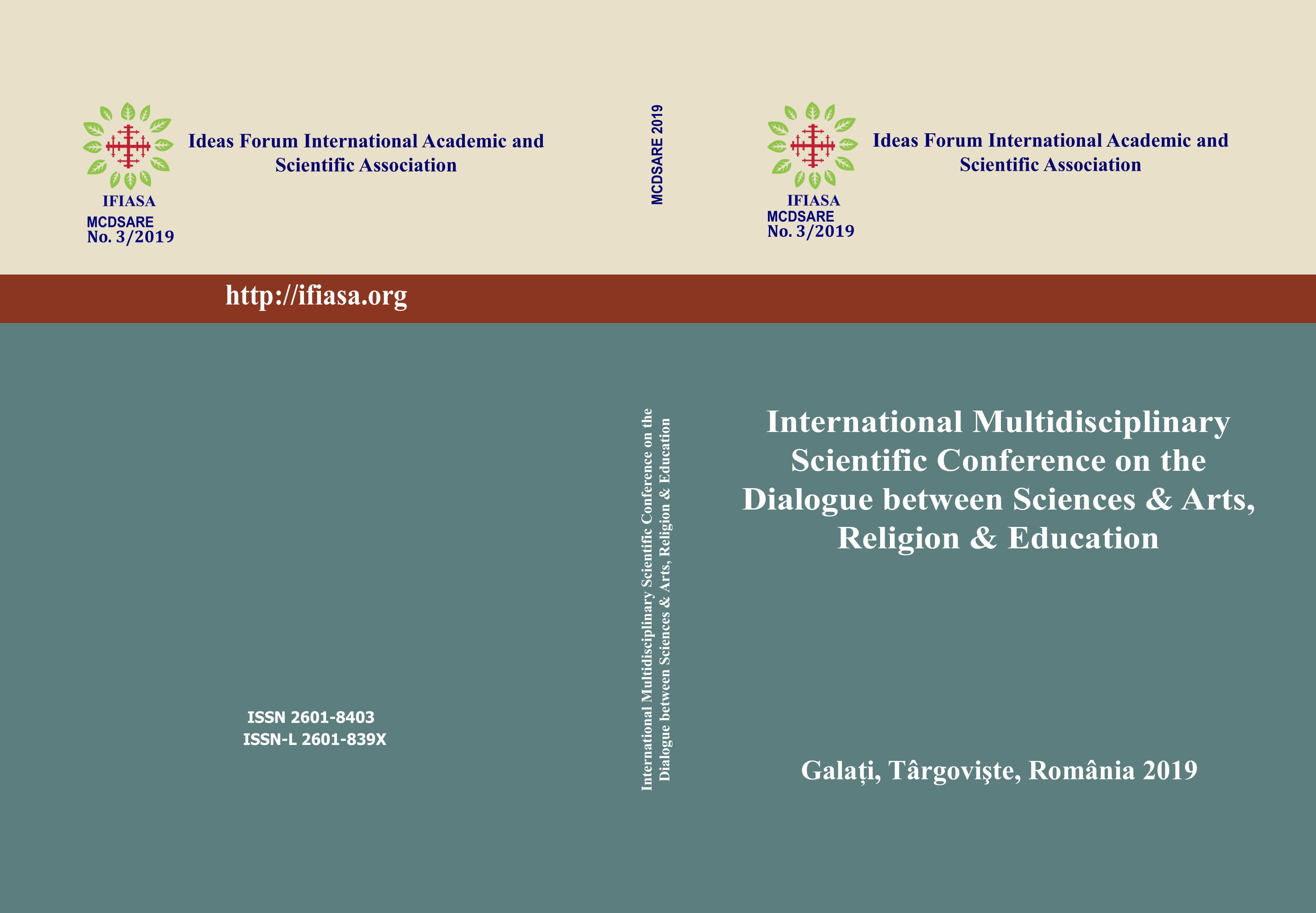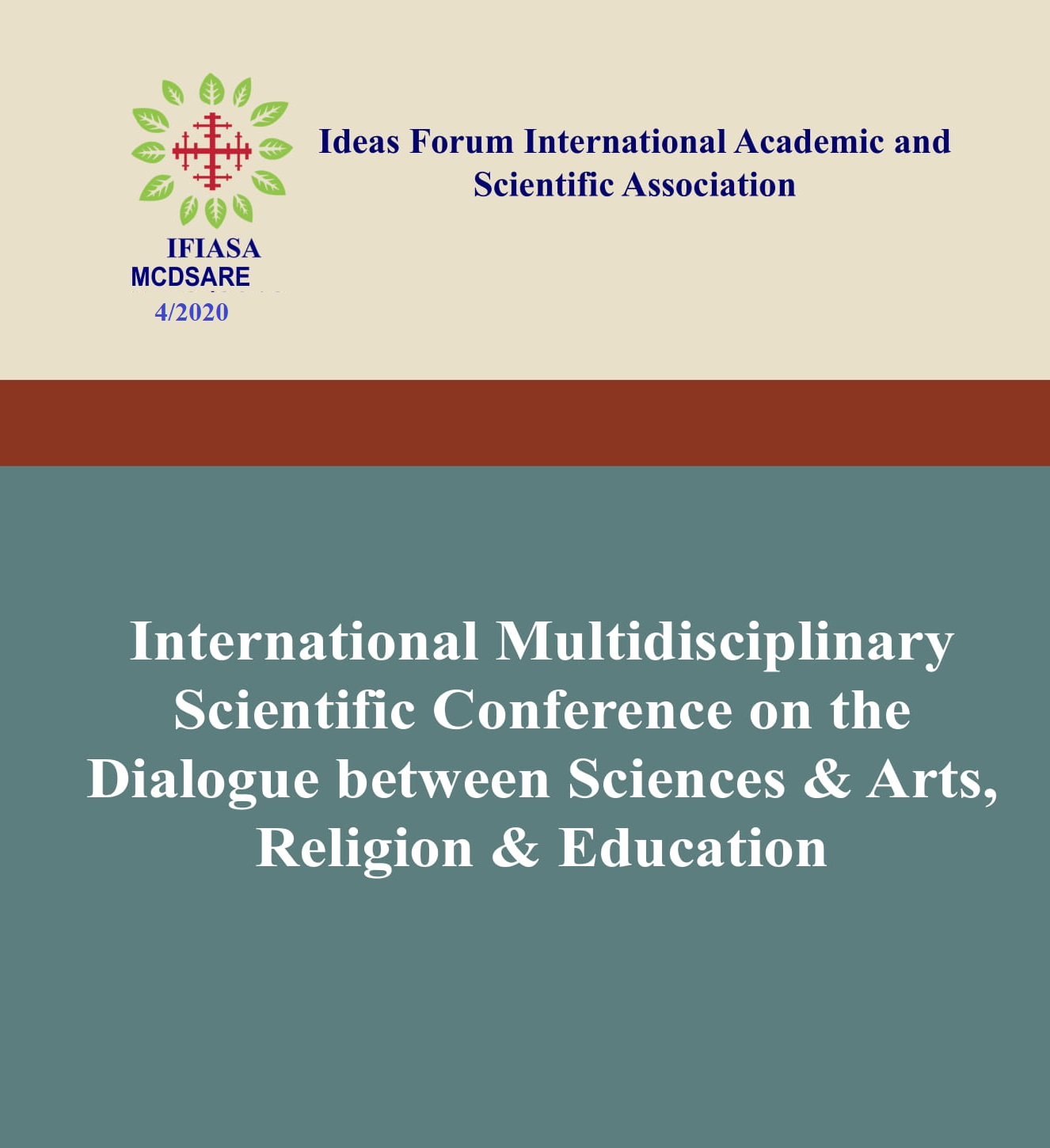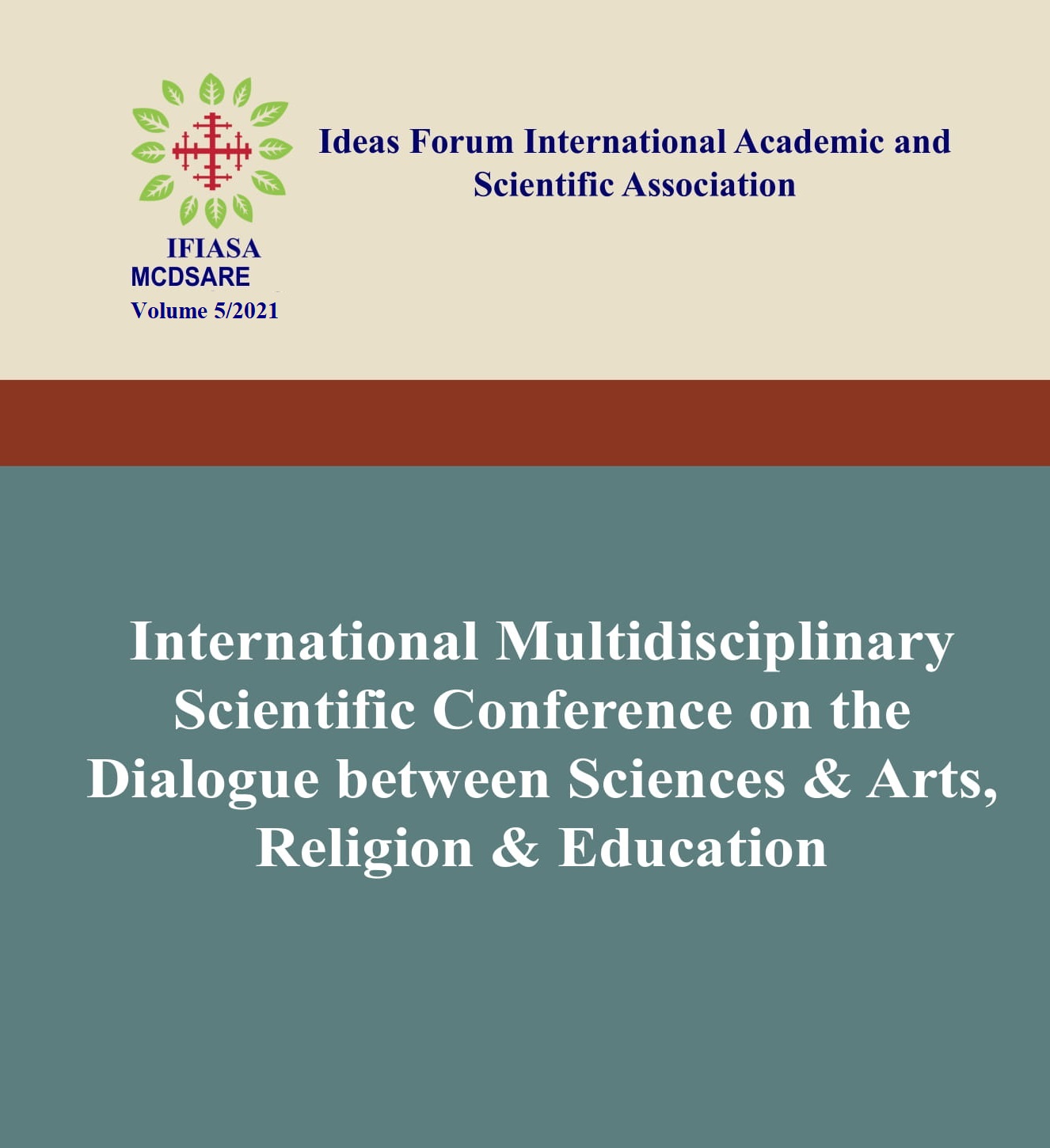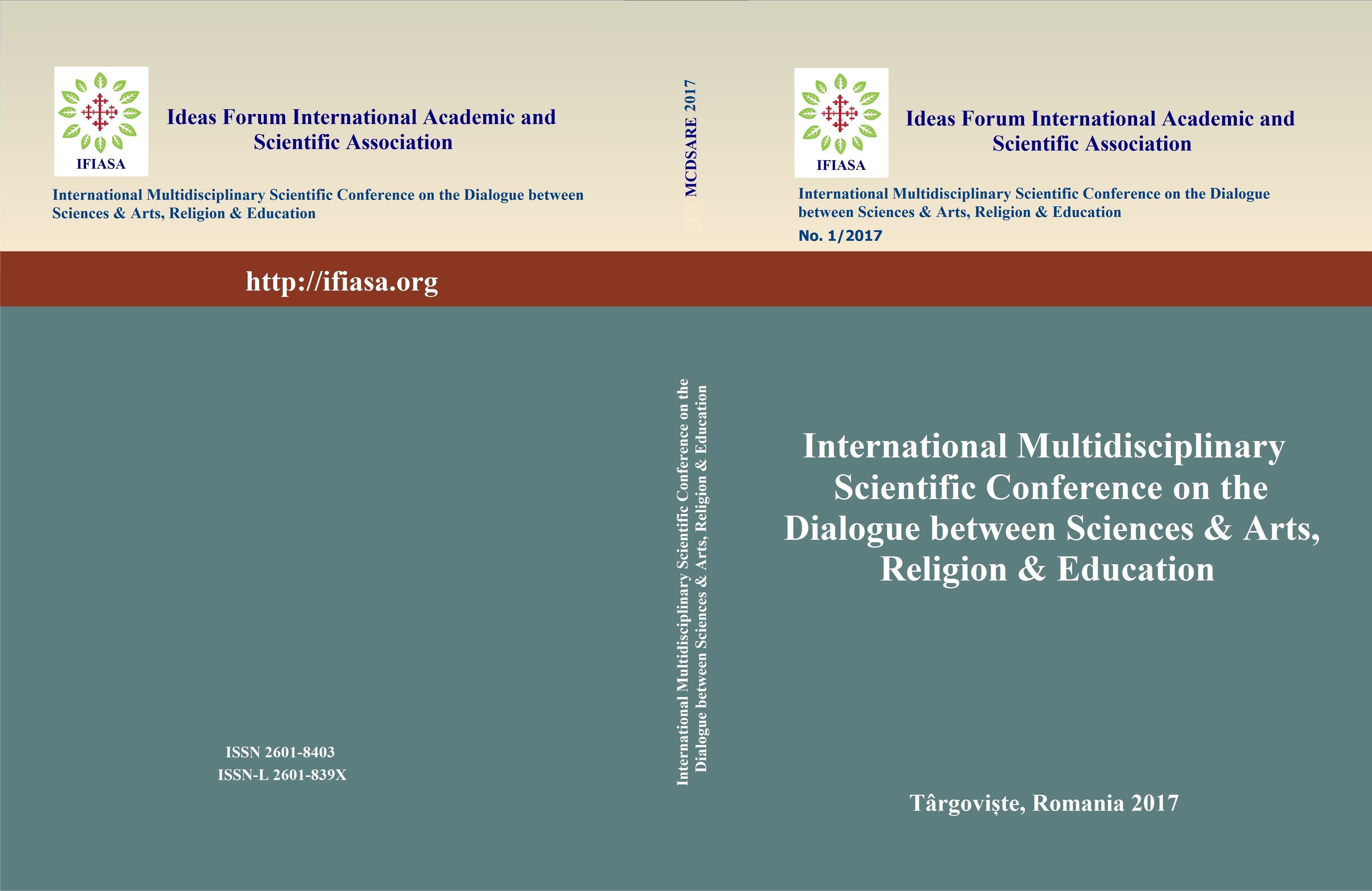
AESTHETICS OF GEOMETRY IN FOLK ART IN PRIMARY SCHOOL EDUCATION
AESTHETICS OF GEOMETRY IN FOLK ART IN PRIMARY SCHOOL EDUCATION
Keywords: aesthetics of geometry; aesthetic of folk art; folk motifs; folk dance; primary school education;
In the title of this article there are associated terms that apparently relate to various fields of interest:aesthetics, geometry, folklore and education. The concern for aproaching a theme such as Aesthetics ofGeometry in Folk Art in Primary School Education stems from current professional practice, from thedesire to find answers where they are not sufficiently sought - in the essence of the human being.The present paper is structured on three parts preceded by the introduction. In the first part there aresynthesized some ideas regarding the presence of the elements of geometry in the folk motifs, in thesongs and dances specific to the folklore of the children. The second part details some features of popularaesthetics of intrinsic and extrinsic value. The third part describes how the geometry and folk art can beintertwined in the didactic approach both in order to optimize students' school performances and toeducate them as authenticity-oriented individuals.
More...
